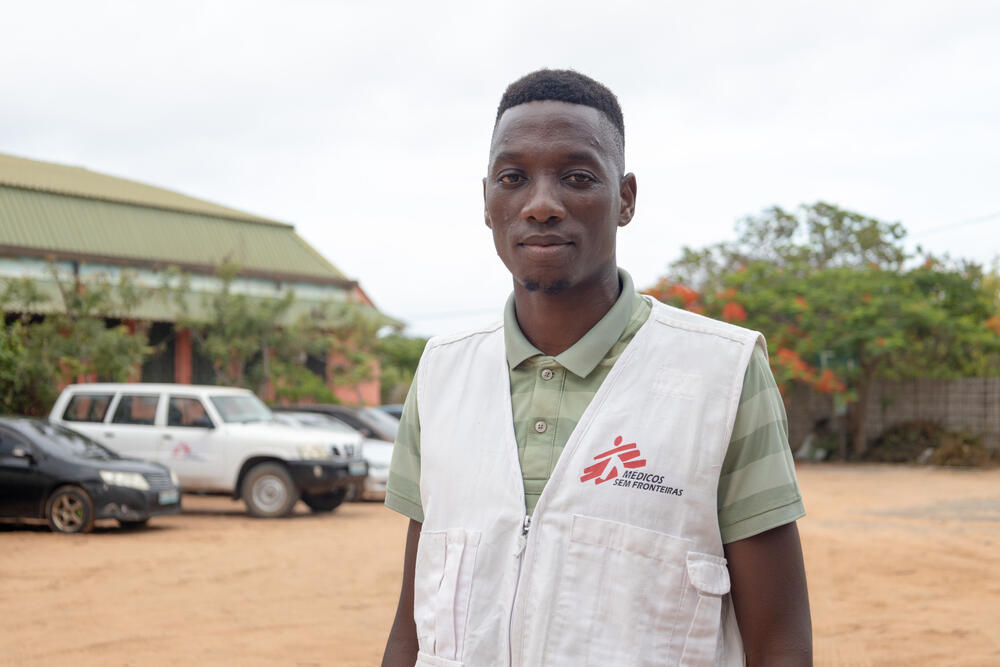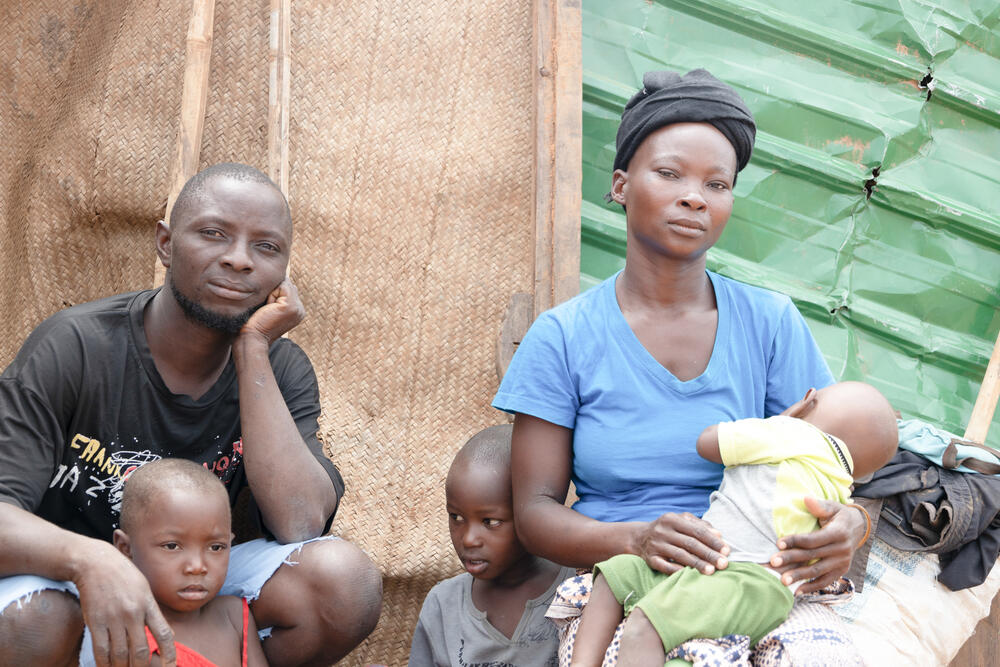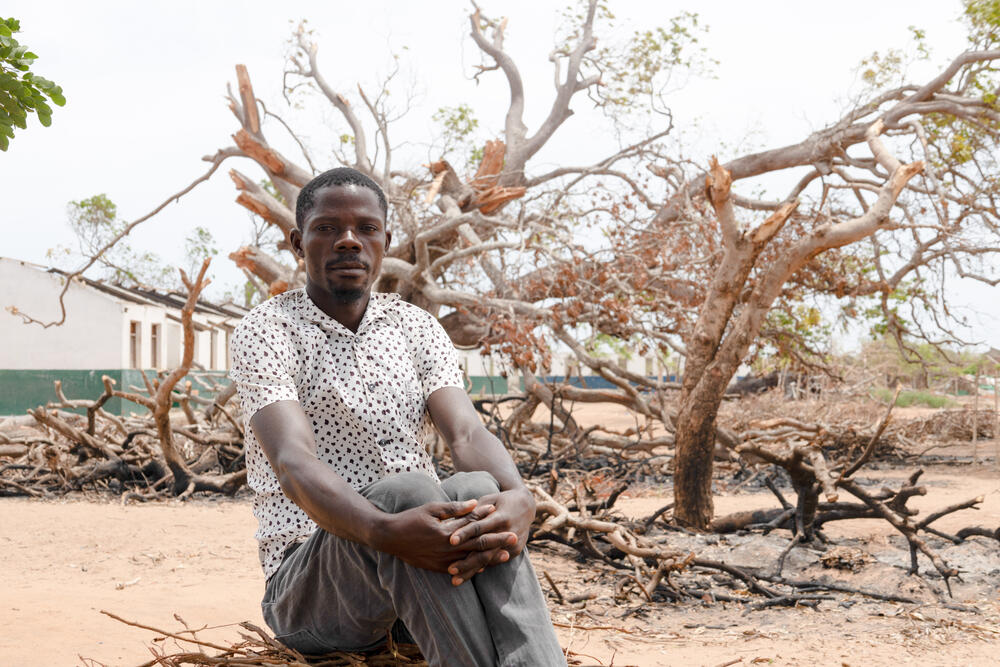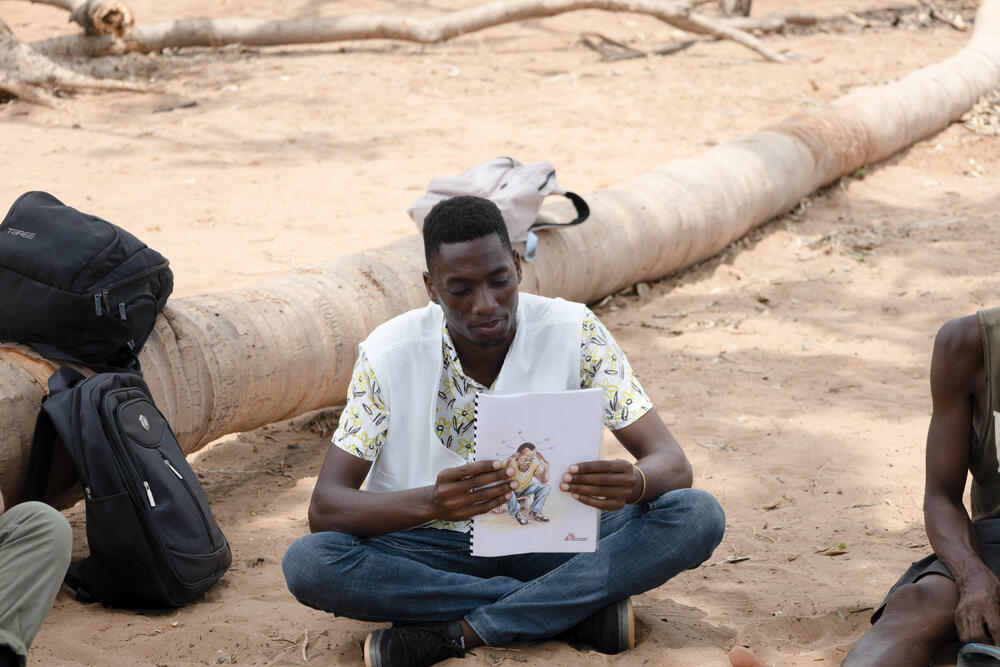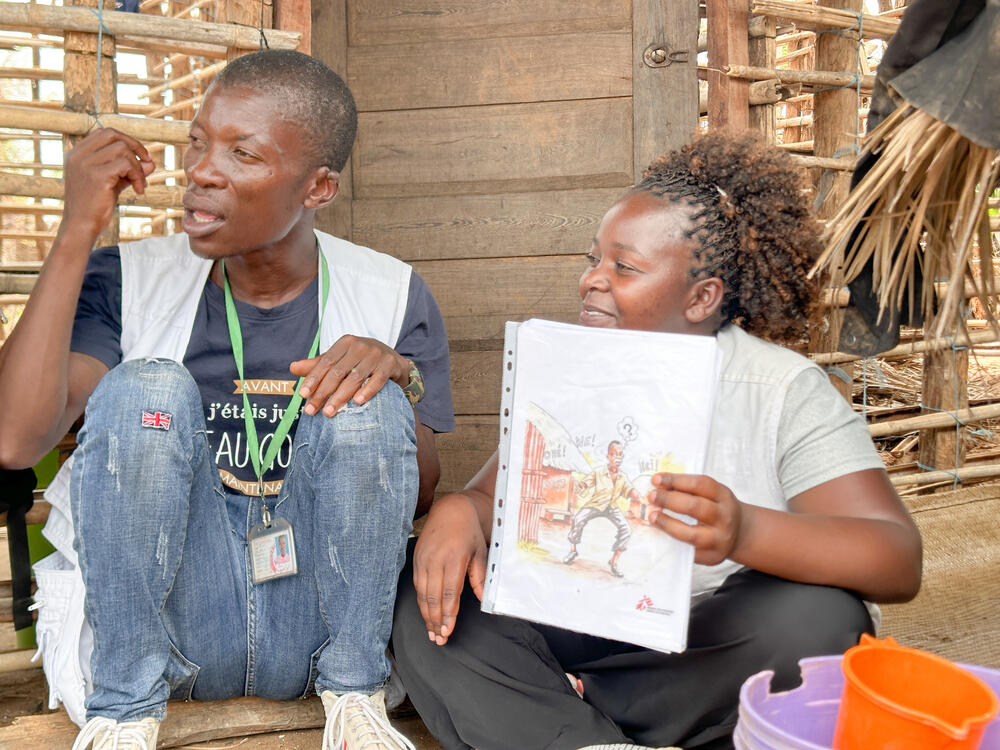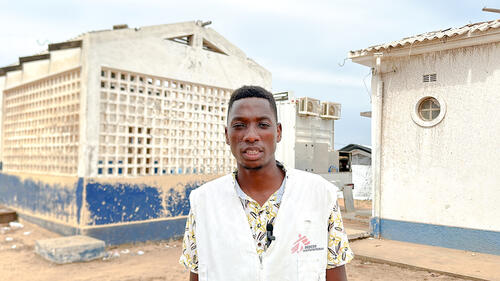Voices from Mozambique in the wake of Cyclone Chido
15 January 2025
The landfall of the storm in mid-December caused havoc across several areas of northern Mozambique, causing about 120 deaths, and affecting hundreds of thousands of people. These are the testimonies of some survivors and MSF staff who are providing a medical response in the district of Mecufi, in Cabo Delgado province.
Abudo Chuabo, resident
"Most of the time, I feel sad. Not knowing what to eat and living with the uncertainty of tomorrow leaves me feeling powerless. I have nightmares every night, and any gust of wind terrifies me because I fear it (another cyclone) might happen again. After losing our house, I have been taking shelter at the school with my family (they live now in an improvised shelter made of straw and sticks).
I never imagined I would go through something like this. Seeing that most people here lost everything makes me uncomfortable. We are facing a lot of hunger. Sleeping in this hut is an ordeal. I try to smile but tears quickly appear because I don’t know where to start rebuilding my life. My wife has been my source of comfort. Every morning, she tells me it will be just a matter of time to get back the things that the cyclone took away from us. I wish things were as easy as she says, but knowing it’s not that easy makes me sad and depressed.”
Jorge, resident
“I lost my home and all my belongings. My family and I are sleeping in the open. I have constant headaches, and I think every day about the uncertainty of tomorrow. The crops from my farm were also destroyed, and hunger has settled in my home. This is very frustrating. When the storm hit, my family and I were at home, but as the winds grew stronger, we decided to seek shelter at a school.
We thought we would be safe, but the wind blew off the entire roof structure of the school. In the room where we were staying, there were about 10 families, and others were in different spaces. We were all left without direction when the school’s roof was gone. We didn’t know what to do anymore, we were in despair. I had to ask for shelter at a neighbor’s house that wasn’t destroyed. The next day, we had to return to what was left of our house, and the shock was profound. Seeing years of sacrifice reduced to rubble was a hard blow for me. I try to find the strength to move forward, but the sadness sometimes leaves me without the energy to go on."
"When I look at my children, I have no choice but to keep moving and come up with strategies, at least so we don’t die of hunger.”
Basílio Jamal, MSF mental health counselor
“Many people in the communities are traumatized by the tragedy and are searching for strength to cope with the situation. Some have nightmares, while others report difficulties eating or sleeping. Some people say that every time they try to sleep, memories of the moment of destruction resurface.
For those who lost family members, the work of rebuilding their lives is even more challenging. With the support of mental health sessions, people (get tools) to confront this harsh reality.”
Beatriz Cardoso, mental health promoter
“The cyclone brought deep challenges for everyone. Mental health care needs to be made available immediately for specific and urgent issues. As mental health promoters, providing this support is part of our response to offer emotional and practical help. People have lost everything. Some find it easier than others to confront this harsh reality. We try to understand each person’s circumstances to address their mental health needs individually.”
